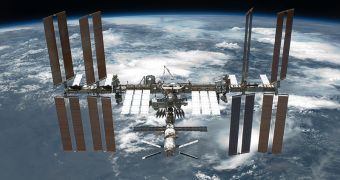The Center for the Advancement of Science in Space (CASIS), a nonprofit organization dedicated to promoting research aboard the International Space Station (ISS), has recently awarded a $300,000 (€218,500 euro) grant to a researcher in the United States for growing human stem cells in space.
Scientist Abba Zubair, MD, PhD, holds an appointment as the medical and scientific director of the Cell Therapy Laboratory (CTL) at the Mayo Clinic in Florida. He explains that this would be the first space experiment to be conducted by scientists at Mayo.
Zubair argues that there are still many things to learn about human stem cells, including how various conditions affect their growth. One theory suggests that zero gravity – such as can be found aboard the ISS – could make these cells grow faster. Until now, the Mayo group had no way to test this idea.
What the team leader believes is that stem cells grown in space may one day be used to treat stroke victims here on Earth. Additionally, he argues that whole organs and human tissues can potentially be grown in microgravity, Science Daily reports.
When it launches towards the space station, the Mayo experiment will be the first-ever to include human stem cells, which are usually found in bone marrow. The main goal of the research is to prove that cultures made from these cells grow faster in space than in special labs here on the surface.
“On Earth, we face many challenges in trying to grow enough stem cells to treat patients. It now takes a month to generate enough cells for a few patients. A clinical-grade laboratory in space could provide the answer we all have been seeking for regenerative medicine,” Zubair explains.
Human stem cells can be used for a variety of biomedical applications, including for the regeneration of neurons and blood vessels affected by hemorrhagic strokes. These events are caused by blood clots, and they can significantly impair blood flow and normal cognitive processes in patients.
“f you have a ready supply of these cells, you can treat almost any condition, and can theoretically regenerate entire organs using a scaffold. Additionally, they don't need to come from individual patients – anyone can use them without rejection,” Dr. Zubair explains.
A team of engineers at the University of Colorado has already begun work on constructing a new cell bioreactor, which the Mayo group will use to conduct its experiments. The bioreactor may be launched towards the ISS in less than a year.

 14 DAY TRIAL //
14 DAY TRIAL //